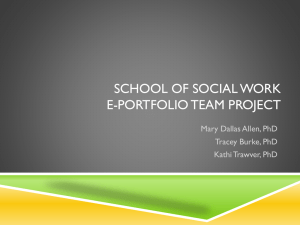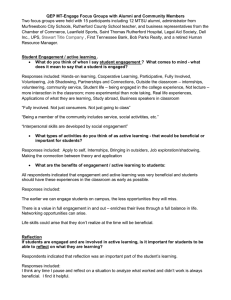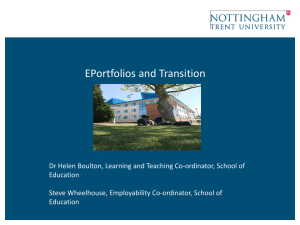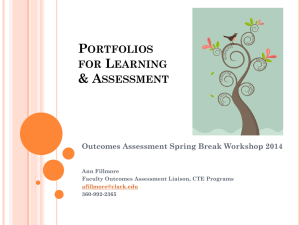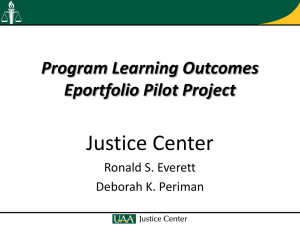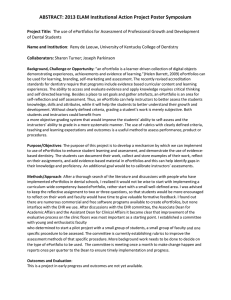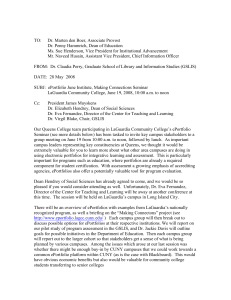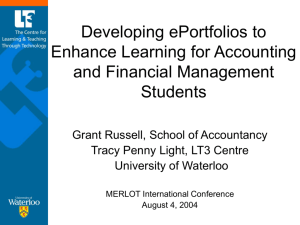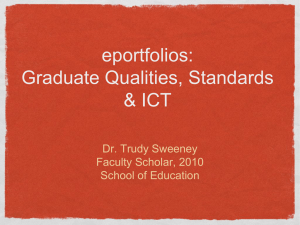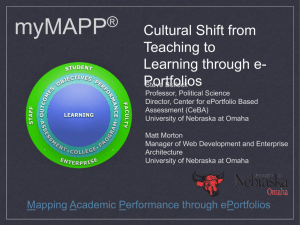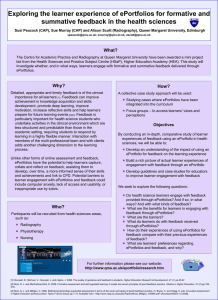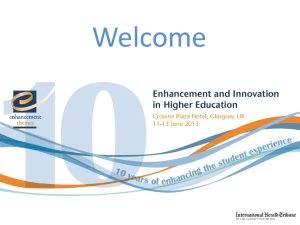Connecting Learning with ePortfolios
advertisement
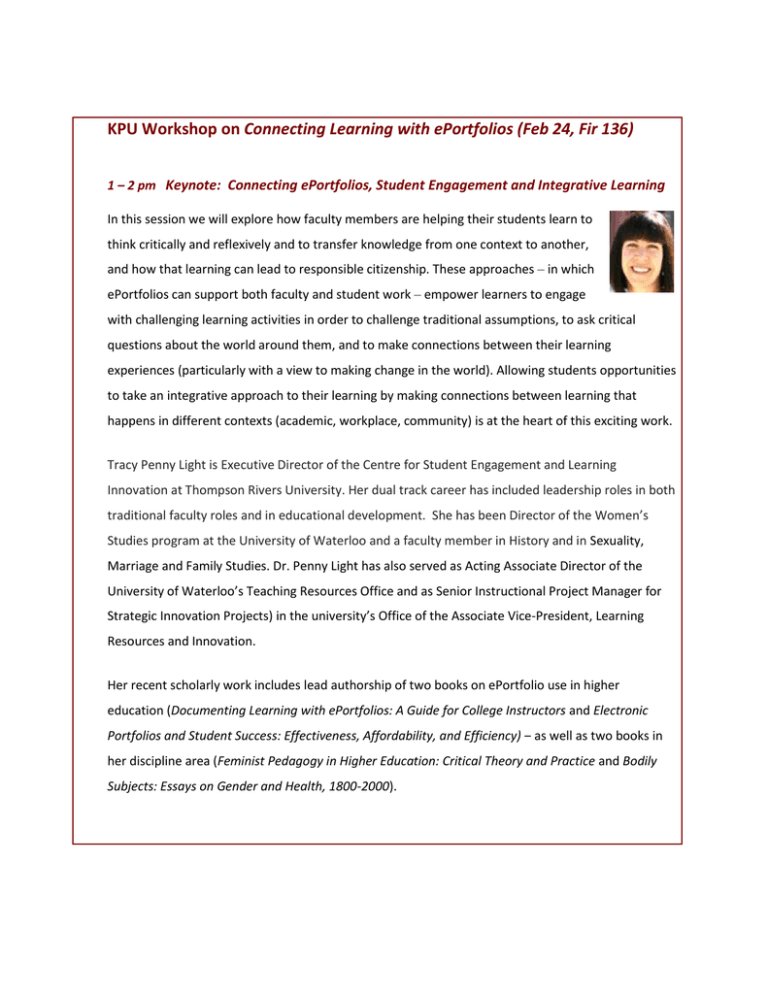
KPU Workshop on Connecting Learning with ePortfolios (Feb 24, Fir 136) 1 – 2 pm Keynote: Connecting ePortfolios, Student Engagement and Integrative Learning In this session we will explore how faculty members are helping their students learn to think critically and reflexively and to transfer knowledge from one context to another, and how that learning can lead to responsible citizenship. These approaches ‒ in which ePortfolios can support both faculty and student work ‒ empower learners to engage with challenging learning activities in order to challenge traditional assumptions, to ask critical questions about the world around them, and to make connections between their learning experiences (particularly with a view to making change in the world). Allowing students opportunities to take an integrative approach to their learning by making connections between learning that happens in different contexts (academic, workplace, community) is at the heart of this exciting work. Tracy Penny Light is Executive Director of the Centre for Student Engagement and Learning Innovation at Thompson Rivers University. Her dual track career has included leadership roles in both traditional faculty roles and in educational development. She has been Director of the Women’s Studies program at the University of Waterloo and a faculty member in History and in Sexuality, Marriage and Family Studies. Dr. Penny Light has also served as Acting Associate Director of the University of Waterloo’s Teaching Resources Office and as Senior Instructional Project Manager for Strategic Innovation Projects) in the university’s Office of the Associate Vice-President, Learning Resources and Innovation. Her recent scholarly work includes lead authorship of two books on ePortfolio use in higher education (Documenting Learning with ePortfolios: A Guide for College Instructors and Electronic Portfolios and Student Success: Effectiveness, Affordability, and Efficiency) ‒ as well as two books in her discipline area (Feminist Pedagogy in Higher Education: Critical Theory and Practice and Bodily Subjects: Essays on Gender and Health, 1800-2000). 2 – 3:30 pm Panel ‒ KPU Case Studies: Faith Auton-Cuff - Department of Educational Studies, Faculty of Arts Portfolios are currently used in EDUC 4100 Post-University Transitions to provide senior students an opportunity to reflect on their body of work both in and outside of KPU with a focus on developing a repository of information that they are able to use in applications and interviews to demonstrate who they are and what they have to offer. We are also planning to introduce a Professional Development Learning Portfolio in our new BA in Human Services. The portfolio is designed to help students deepen their understanding of human service practice by direct experience and critical reflection. Students will create a repository of learning artifacts for ongoing professional development. Lyn Benn – Director, Student Development and Success As part of our Quality Assurance processes, tutors at KPU receive three levels of training leading towards Professional Tutor certification. As part of their training, student tutors are encouraged to put an ePortfolio together to showcase their development and expertise as tutors. This ePortfolio can then be linked to their social media accounts (such as LinkedIn) and will provide evidence of their tutoring expertise, or used to advertise their competencies as Professional Tutors, or both. June Kaminski – Bachelor of Science in Nursing, Post Baccalaureate program, Faculty of Health In our Post-Bac B.Sc.N. program, Mahara ePortfolios are used as assessment, credential, learning and showcase portfolios. Over the seven semesters, learning artifacts are added to produce a robust repository of student work. These artifacts include aesthetic creative work, practice journals, case study analyses, and other assigned work. We also use student ePortfolios as a stimulus and repository for reflection on both practice and theory (and the connection between them). In addition, dialogic journals are used frequently to encourage critical and meaningful reflection by students, and responded to by faculty to encourage praxis reflection. Joanne Massey – Computer Aided Drafting and Design program, Faculty of Trades & Technology In the CADD program ePortfolios are integrated at two stages. In the first semester students begin creating ePortfolio pages in Mahara to display sample work and to blog about their weekly research into different drafting and design specialties. In the third semester, students create professional practice ePortfolios in WordPress, giving them an opportunity to expand their digital skill set and build tools to assist them with their career search. Lesley McCannell – Human Resources Management Program, School of Business We have fully integrated ePortfolios into the curriculum for the BBA HRMT and Post Baccalaureate HRMT programs. Each of the 10 HRMT classes has an ePortfolio assignment that leads to a final ePortfolio assessment as part of the program's capstone course. All our ePortfolio assignments have common assessment elements including: knowledge documentation, learning reflection, a competency evaluation and a development plan for the CHRP professional designation
